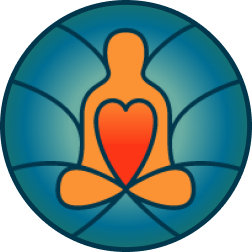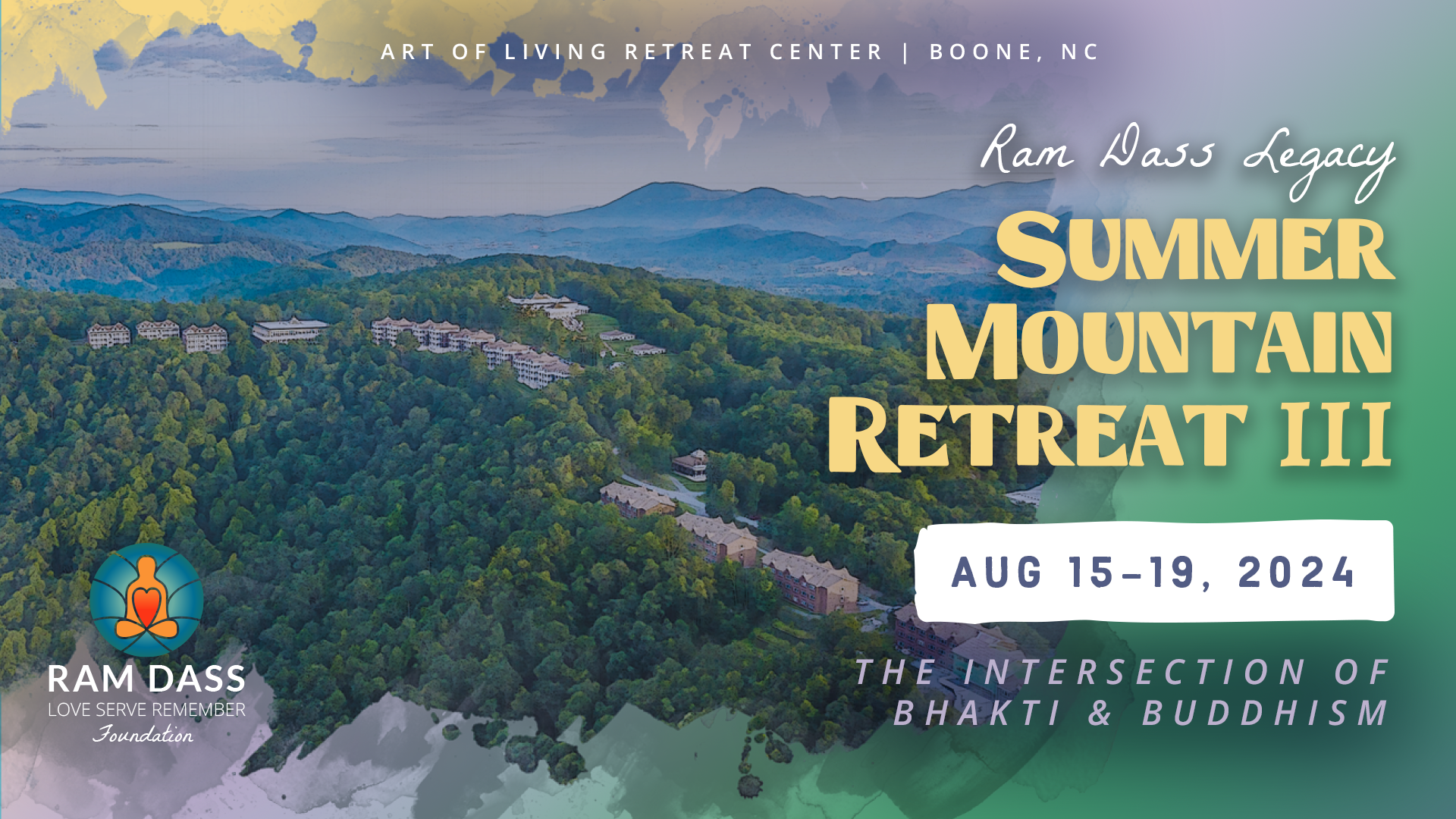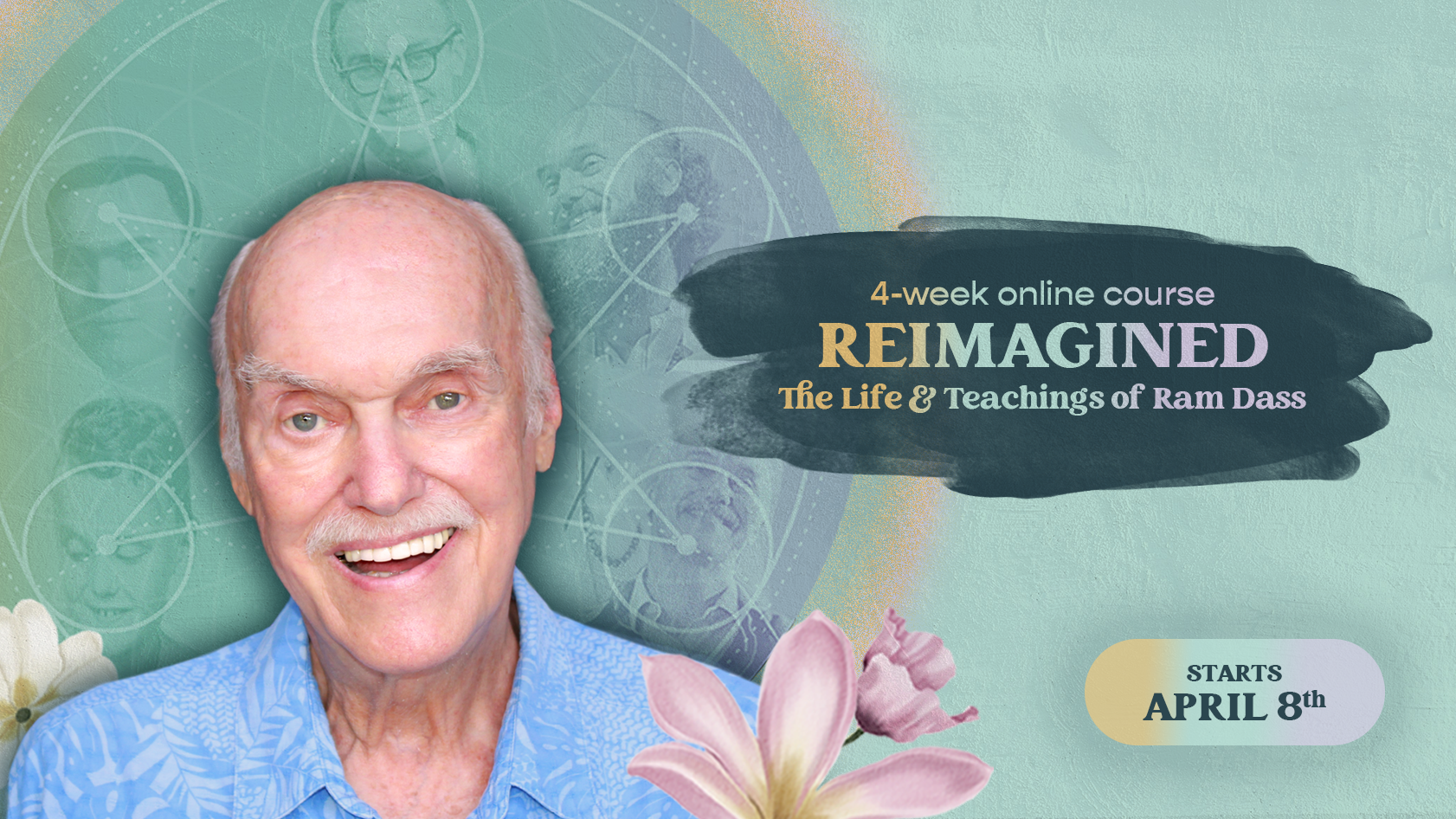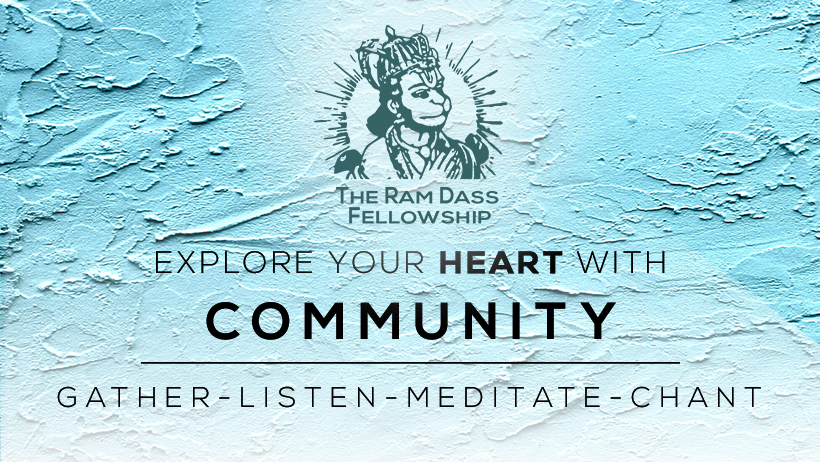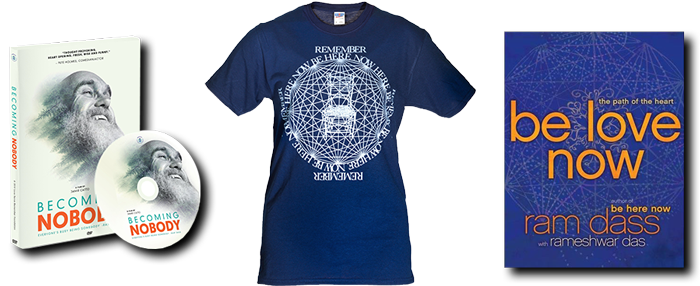Written by Noah Markus
I’ve always been a pretty anxious person, even as a child. Getting to sleep was (and still occasionally is) a problem for me, because it’s like my mind just wouldn’t turn off. Fortunately for me, music had my back.
For a long time as a kid, every night I would fall asleep listening to a recording my father, Raghu Markus, and Krishna Das made of KK Sah. I’ll let Raghu fill in the details:
“KK is Ram Dass’ Indian brother and our mentor from our days in India with Maharajji; he still is. He has come regularly to the States over the decades. One time when he came to America we took him into a studio. We gave him an electronic keyboard, and Krishna Das and I switched off playing drums. We still have that recording. KK is an example of somebody who is able to share music in a way that brings other people into the moment, and that happens through the power of his love for the divine presence. You could say the same thing about Bob Marley, and you could certainly say the same thing about John Coltrane.”
What is music as an ally?
This was a question Raghu and David Silver attempted to answer on one of the very first episodes of their Mindrolling Podcast. Raghu eventually said this about music as an ally, which struck a chord with me:
“It’s a circular feeling that becomes very trance-like, and puts you into a one-pointed place where your discursive thought gets eliminated. It’s at this point that a deep absorption into the inner self can take hold.”
Listen to Mindrolling Episode 3: Music as Ally.
I recently was able to catch up with David, and I asked him to reflect on what Raghu had said back then:
“Raghu! Very articulate! There’s a lot a variables within there, depending on what kind of music, why you’re using it, what for. And it’s something we make a decision about sometimes several times a day… I liked Raghu’s circular thing about getting rid of discursive thought, which [music] can. And it can do a very quick, sort of micro-healing, because that’s why we listen to it in the first place.”
When I read Raghu his earlier statement and asked him to expand on it, he had this to add:
“I think that’s all true, but there’s another element. I’m thinking about one thing that I heard recently that Krishna Das did, which is a version of the Hanuman Chalisa, that he calls Prema (love) Chalisa, with a particular melody. Krishna Das had such deep intention when he sang that song that anybody who just pushes the play button – I don’t care if they have no idea what it’s about, I don’t care if they’re not on the spiritual path – they are instantly put into a possibly unfamiliar place where their thinking mind is not operating the way it normally is. It disappears. You disappear for a moment. So it’s that deep presence of bhav, emotional expression of spirit, which Krishna Das is so famous for. Because he’s not doing it as entertainment, he’s really doing it for the right reasons in terms of his practice.”
Listen to Krishna Das sing the Prema Chalisa.
So to me, that is really one of the first (and most important) ways that music is our ally – it takes us away from ourselves for a moment. We can take a break from our thoughts and feelings and, well, just be here now. Once we start being here now, there’s no telling what can happen.
For tons of people, music is the first thing that sets them down the spiritual path. This was definitely the case for Justin Boreta, who’s in the electronic band, The Glitch Mob. He dropped by Mindrolling to chat about the transformative power of music, and had this to say:
“It’s funny how often we hear it, but it was music [that got me on the path]. It was the combination of music first and then into psychedelics and then into meditation… For me, music lines up perfectly with my meditation practice. The funny thing is that even before I had a practice, music served that role for me and I think for a lot of people it is that, whether or not they would call it that. When you listen to music, to really get the essence of it, you have to actually be in the moment.”
Listen to Mindrolling Episode 250: Path of the Heart with Justin Boreta.
Getting the first taste
When I set about writing this piece, the first thing that popped into my head, of course, was Krishna Das and kirtan music. That’s really the easiest concept of music as an ally to grab onto. But most people aren’t as lucky as I was, being introduced to kirtan music from day one. But there are so many avenues, so many different types of music out there – there is no one path.
For both David and Raghu, that path was straight down Coltrane Boulevard. Here’s how Raghu describes his first time seeing John Coltrane live:
“I was 16 or 17 years old, and I got lucky. I got into a nightclub in Montreal where it was the John Coltrane Quartet and he played “My Favorite Things” with that deep intention, devotion, clarity. I actually had an out-of-body experience. I mean, I couldn’t feel myself, I couldn’t remember myself. I wasn’t remembering my normal relationships with ‘me, me, me’ in that moment.”
It was a very similar experience for David:
“I saw Coltrane live at the Dome Auditorium in Brighton, in Sussex in England. He did a tour with Eric Dolphy, and McCoy Tyner, and Elvin Jones, and I was lucky enough to go to it. That was an important moment for me, because my older brother was a jazz fanatic. John Coltrane to him was as close to a divine figure as he could get with. He got great tickets for the two of us. In fact, front row, center. So I had the privilege of being about 20 feet away from John Coltrane for about two hours. And that was astonishing. It changed my life… I can’t call it a spiritual change as much as a visceral change. But it certainly helped me.”
Listen to “My Favorite Things” by John Coltrane.
Of course, today’s younger people are much likely to have their first taste of music as an ally in the form of hip hop. This was definitely the case for Mindrolling guest MC YOGI:
“I was painting graffiti a lot, because I had turned towards hip hop as an outlet to express myself. Like you were saying, how the music helped to carry you through some difficult times, hip hop became a real positive force in my life and it kind of helped me to a community of artists and dancers and MCs, poets, DJs. That was like a little bit of light during those early years.”
Listen to Mindrolling Episode 213 – MC YOGI.
Rock changes the game
For much of David and Raghu’s generation, their spiritual explorations coincided with (and were very much influenced by) the radical changes happening in music in the 1960s and 70s, particularly with Rock & Roll. As David explains on Mindrolling:
“When Dylan started playing electric music, I was just totally enthralled, and felt that there was something out there that millions of other people were aware of, that corresponded to a feeling inside my heart and my mind, which was a mixture of rebellion, liberation, confusion, chaos, and order… That was probably the first ‘pop’ person for me who had that effect, who wasn’t just an entertainer who made you laugh and then you felt slightly better and you went home.”
In my interview with David, he talks about how the Beatles’ Revolver changed the game up even more, as it was the first album produced after their fateful trip to India:
“Revolver was remarkable because it just took us all to different level. It wasn’t really ‘psychedelic’ music in the same way that Pink Floyd was, or even the Dead. It was more just multilevel, multidimensional. John Lennon instigated a new kind of depth and didn’t seem to care one way or another whether it was popular, and that was a big turning point for all of us that were listening to that kind of music.”
Turn off your mind, relax, and float downstream.
So as “pop” music expanded in different directions, so too did its capability to become an ally. I, for one, know that listening to Jimi Hendrix play guitar is like letting my ears mingle with the divine (I don’t think the purple haze ever lifted from my mind). The Rolling Stones taught me that having sympathy for the devil can be a very spiritual experience. There are tons of artists outside the kirtan realm who have played my ally, who take me away from myself and into the moment.
Are you experienced? Jimi wants to know.
When I asked Raghu about some of the Rock & Roll artists he felt were in that category, we talked a bit about Bruce Springsteen and U2 (in addition to some of the artists already mentioned), and then he added this:
“There are many other examples that we could make, but it boils down to somebody who is letting go of their personality/ego. They can. They have that ability to let go in the moment and just access that deeper place. And from that place, people can share that love, joy, caring, compassion. They don’t call it any of that, but that’s what happens.”
The messenger
Of course, there’s no one that does it for me like Bob Marley. Bob has my back when I need him the most. Fortunately for all of us, David Silver spent a good deal of time with Bob Marley before he passed, and is quite well versed in the original reggae music scene, which he holds in very high regard:
“The most accessible music ally, which has an access between romantic music and totally spiritual music, is obviously reggae music… The original reggae music, as defined by Bob Marley and his two Wailer compatriots, Bunny Wailer and Peter Tosh – that is purely spiritual and political music, there’s nothing else. I mean, there’s love songs, but they sort of remind you of what they used to call metaphysical poetry in English poetry, and also Jewish mysticism, which is comparing the love for god, or Jah – that unity – to a sort of erotic experience.”
David goes on to talk about his experiences working with Bob, and what made him so special:
“He wanted to be known as someone who was a conduit to transmit matters of humility, of egalitarianism, of social justice… I think Bob’s words, ‘I’m a messenger,’ weren’t saying I’m a priest or a holy man. He was saying this music is designed to take people to a consciousness which is going to heal them.”
Take a break to jam with Bob Marley.
The world at large
In terms of opening up new pathways of consciousness, Indian legend Ali Akbar Khan is right up there with Bob Marley. Mindrolling guest Benjy Wertheimer was lucky enough to study at the feet of the master musician. It’s safe to say that the way David feels about Bob, Benjy feels the same of his idol. He talks about being overcome by just one note at one of Ali Akbar Khan’s shows:
“One of the times I will never forget, it was a concert at the old church on Van Ness Avenue in San Francisco… I was really lucky, I got to be right in the front. They actually let us sit up on the steps right next to the stage, so I was sitting maybe three or four feet away from him, just right there. And he was playing this extraordinary raga known as Darbari Kanada. It is such as evocative raga, and I remember the point where he played the most important note of that raga, the second note in the scale, and I realized, hearing him play that one note, you were talking about this is enough, I could die and feel completed in the music I heard from one note. The way that he played it, it was deeply imbued with everything he poured into his music over decades, it had so much heart, so much feeling.”
Listen to Mindrolling Episode 192 – Benjy Wertheimer.
Raghu and David were also lucky enough to work with Maestro Khan and many other incredibly talented artists as part of their former lives running Triloka Records, a world music label. Raghu talks about why world music is so important:
“We wanted an antidote to the New Age music of the time, and that antidote was discovering incredible music from around the world that had that transformational quality that could become immediately an ally.”
David elaborates further:
“There was something different going on from Western pop music, and it was about that one-pointedness, that taking you to a place of stillness in yourself. No matter how energetic the music was, somehow or another it made you still and therefore was an ally.”
As Triloka Records was such a huge part of my life growing up, I would be remiss if I didn’t provide a sample of their fine music. Here’s a track from one of Triloka’s Ali Akbar Khan records:
Listen to Maestro Ali Akbar Khan.
A spoonful of sugar
As we enter the land of kirtan, I’ll let Krishna Das set the stage for us:
“Music’s value is that it calms the mind, soothes the savage beast, but it doesn’t plant any seeds that will eradicate suffering in the long term. It’s good for quieting it down, and giving you an emotional hit of some kind or other, so I always say that the music is like the syrup that the medicine is hidden in. The medicine is the Name itself.”
Read our interview with Krishna Das on chanting, mantras, and music.
Well, a spoonful of sugar makes the medicine go down, right? As I wrote earlier, I feel very lucky that kirtan has always been there for me. It is the soundtrack to my life, as they say. And whenever I’m out of sorts, down on my luck, so tired my eyes are bleeding, all that crap that life flings at us to make us stay trapped in our mind, I always have kirtan to turn to. I always have KK and KD and Jai Uttal and the many other talented kirtan walas on the scene today.
Let Jai Uttal take you away for a moment.
For David, much of the power of kirtan is found in the call-and-response element of the music:
“…[Kirtan] is a way of conquering those discursive thoughts, and anxiety and neurosis and doubt and all of that. Because if you really get into it, obviously you’re much more into it than just sitting and listening to it because you’re actually repeating the names… What’s key is that it’s call and response. Because even with someone as masterful as Krishna Das or Jai Uttal, if there was no response and it was just KD singing – it would be wonderful because he really is a great singer and a terrific musician – but it’s different when we’re feeding back because then you become a part of the awareness, a part of the consciousness.”
I asked Raghu to elaborate on that and share his thoughts on the power of call and response:
“If you think about melodic chanting as a meditative practice, so that you’re listening to the call, to the person who’s singing the line that you’re going to copy, you can start to feel your mind wander. Then you bring yourself back to the chant when the response happens, you put yourself into that response, and you’re less likely to have discursive thoughts. The discursive thoughts usually come when the lead singer is singing. So the call-and-response factor is very much a meditative practice. The other thing about it is, once you start to let go a little and you just sing and you’re not thinking about yourself, the power of everyone doing it with you creates another atmosphere which allows you to let go even more easily.”
Feel the power of call and response kirtan with Krishna Das.
Ultimately, I really felt like Mindrolling guest Jahnavi Harrison hit the nail on the head when she talked about the power of kirtan:
“Singing and kirtan is an experience that you mature with… You develop a relationship with that practice, which is very personal. It’s a home which exists anywhere where you start to invoke that name. I’ve traveled all over the world, but when you start to chant you feel you’re at home. You come home.”
Listen to Mindrolling Episode 128 – Jahnavi Harrison.
It’s a home that exists anywhere in the world, at any time. That sounds like an ally to me. By the way, if you haven’t listened to Jahnavi sing kirtan, I have a treat for you:
Listen to Jahnavi’s Divine Maha Mantra.
May we all find a home, a sanctuary, an ally in music.
Recommendations
Here are a few more songs that were inspired by talking with Raghu and David, and that I feel represent the concept of music as an ally. Please be sure to add your own recommendations in the comments!
- The Rolling Stones
- The Grateful Dead
- U2
- Peter Gabriel
- Joni Mitchell
- Janis Joplin
- Buffalo Springfield
- Bunny Wailer
- Peter Tosh
- Ras Michael and the Sons of Negus
- Max Romeo
- Muddy Waters
- Sonny Boy Williamson
- Lightnin’ Hopkins
- Stevie Wonder
- Aretha Franklin
- Otis Redding
- Kendrick Lamar
- The Roots
- Blackstar
- Tulku
- Tinariwen
- The Master Musicians of Joujouka
- Madhava Prabhu
- Kaushiki Chakrabarty
- Franz Schubert
- Erik Satie
- Ludwig van Beethoven
- Wolfgang Amadeus Mozart
- Antonio Vivaldi

